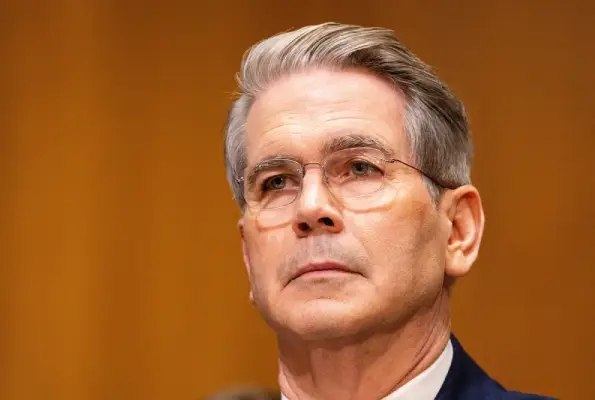The 43-day government shutdown (longest in the country’s history) caused USD 11 billion permanent hit to the United States economy, Treasury Secretary Scott Bessent said, while expressing optimism about growth prospects in 2026, given easing interest rates and tax cuts. The senior Trump government official, while interacting with NBC’s “Meet the Press” segment, also added that parts of the American economy that are sensitive to interest rates, including housing, had been in recession, but he did not see the entire economy at risk of negative growth.
Scott Bessent blamed the services economy, not President Donald Trump’s sweeping tariffs, for inflation, repeating the Republican administration’s longstanding take, and added that he expected lower energy prices to drive down prices more broadly.
Donald Trump is now focusing heavily on affordability in recent weeks after Democratic wins in state and local elections and his declining approval ratings (now at 38%), the lowest since his return to power, as per a recent Reuters/Ipsos poll. The Republican has even reduced tariffs on certain agricultural products.
Scott Bessent struck an upbeat tone, despite recent data showing a slowdown in American factory activity as higher prices caused by tariffs on imports restrained demand. The latest University of Michigan consumer survey also showed frustration among consumers about higher prices.
“I am very, very optimistic about 2026. We have set the table for a very strong, non-inflationary growth economy,” the Treasury Secretary said, while adding that energy prices dropped in October 2025 while home sales rose, amid the administration’s continued “hard work” to bring down the current inflation ratio of 3% further.
The Treasury secretary said inflation was 0.5% higher in Democratic-controlled states than in those run by Republicans, attributing the difference to increased regulation.
Donald Trump’s latest moves to cut tariffs on food imports like bananas and coffee were the result of trade deals that had been negotiated for months, Scott Bessent said, as he continued, “inflation is a composite number and we look at everything, so we are trying to push down the things we can control.”
Meanwhile, National Economic Council Director Kevin Hassett told Fox News’ “Sunday Morning Futures” that he expected 2026 to be “an absolute blockbuster year,” although there would be a “hiccup” in the Q4 2025 because of the longest government shutdown. Expectations have been halved, he said, while forecasting growth of 1.5% to 2%, with a likely rise in manufacturing jobs to boost the scenario for 2026.


